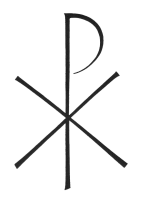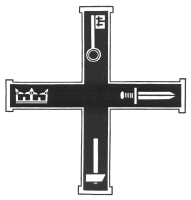
"The Christian Village"
Course # 0128-100
Prof. Felix Just, S.J.
Dept. of Theology & Religious Studies
University of San Francisco


|
"The Christian Village" Prof. Felix Just, S.J. |

|
Course Syllabus - Spring 2006
Sec. 2: MW 8:05 – 9:20 a.m., LM 244A Sec.
1: MW 11:35 – 12:50, LM 244A
Office Hours: by appt. Office:
CAT 6 (Welsh Field trailers are now closed; email or call me to make an appointment)
Email: fnjust—at—usfca.edu Home Phone: 415-422-5302
Course Description and Learning Outcomes:
This core course is intended to expand your understanding and enliven your appreciation of religion in general and Christianity in particular. We will study a wide variety of aspects and elements of Christianity, including its origins, history, demographics, theology, and praxis. We will pay attention not only to foundational texts and official doctrines, but also to liturgical rites, spiritual practices, moral teachings, popular piety, art and architecture, etc.
As a result of this course, students should be able to:
- understand the foundational role of the Bible (its origin, interpretation, and use) in Christian life;
- know the key figures and historical highlights of the 2000-year growth and development of Christianity;
- explain the core beliefs and practices that are common to all branches of Christianity throughout the world;
- know some of the main differences between the Orthodox, Catholic, and Protestant branches of Christianity;
- appreciate the complex relationship of Christianity to other major world religions, esp. to Judaism and Islam;
- understand how Christianity has influenced such perennial issues as war & peace, justice, and the environment;
- recognize how religion, theology, and spirituality underlie and correlate with a broad range of human experience;
- know how to find reliable information and resources for life-long learning about Christianity and other religions.
For the official "learning goals" of USF's Core Curriculum, see also http://www.usfca.edu/acadserv/catalog/.
Required Textbooks and Instructional Materials:
An "Educational Covenant":
The process of teaching and learning requires attention to several basic principles:
a) respect for one another; b) respect for the subject material; c) respect for the learning process.
To make these principles concrete, all of us need to contribute to the process:
I, the professor, promise to: You, the student, promise to: · be well-prepared for each class
· be serious and enthusiastic about the course
· be respectful of your views and experiences
· be attentive to your struggles and progress
· be available to you outside of the classroom
· not eat or drink or use cell phones during class
· bring all materials needed for instruction
· explain the format and content of exams
· let you know ASAP if class must be cancelled
· start and end class on time each day· be well-prepared for each class
· be serious and enthusiastic about the course
· be respectful of my and other students' views
· be responsible for your own work and progress
· participate in class and in your discussion group
· not eat or drink or use cell phones during class
· always bring your Bible and textbooks to class
· study carefully and thoroughly for all the exams
· inform me if you have an unavoidable absence
· be on time, and remain for the whole class
Course Work and Expectations:
|
|
|
|
|
|
|
|
|
|
|
|
|
|
|
|
|
|
|
|
|
|
|
|
|
|
Disclaimer:
This syllabus may be modified slightly during this semester, as announced in class and on the course website.
Affirmation of Acceptance:
We, the undersigned student and teacher, agree to abide by all the aforementioned stipulations of this syllabus, including the "Educational Covenant" and the "Course Work and Expectations," to the best of our ability.
Student's Name (print): ____________________________________ Date: ___________________________________
Student's Signature: _______________________________________ Instructor: _______________________________
See also Class Schedule | Discussion Groups | Research Project | Study Guide: Quizzes | Study Guide: Gilles | Study Guides: Rausch
Return to the Homepage of Prof. Felix Just, S.J.